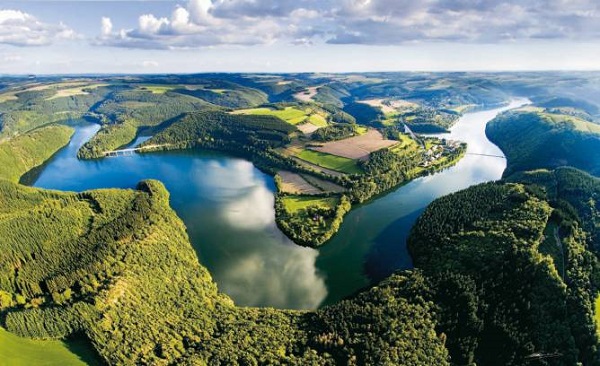
Luxembourg's Water Management Administration has announced that, following the proliferation of cyanobacteria - commonly referred to as "blue-green algae" - in the Haute-Sûre lake, which was accompanied by a high concentrations of toxins, the situation has recently improved significantly.
The seasonal changes in climatology and hydrodynamics of Haute-Sûre lake have led to a sharp decline in cyanobacterial biomass and the dissipation of blooms. The analyses conducted by the Luxembourg Institute of Science and Technology (LIST) have shown that cyanotoxin concentrations that can cause health problems in humans and animals have also decreased considerably.
This evolution of the situation puts an end to the alert concerning microbiological and toxic risks in public health (related to the presence of cyanobacteria blooms).
Recreational and sports activities
The practice of recreational and sports activities, with the exception of swimming, can now resume. In this context, the bathing season ended on 30 September 2018. The current situation regarding the opening or closing of official bathing sites can be followed on the website of the Water Management Administration.
Consumption of gutted fish no longer discouraged
With regard to the consumption of fish caught in Lake Haute-Sûre, the Food Security Division of the Directorate of Health recommends not to consume fish caught during periods of cyanobacteria bloom. Although these have dissipated, the bioaccumulation effect of toxins produced by cyanobacteria in the liver of fish can not be ruled out. Therefore, it is advisable to eat only gutted fish.








